

Share
13th January 2019
08:28pm GMT

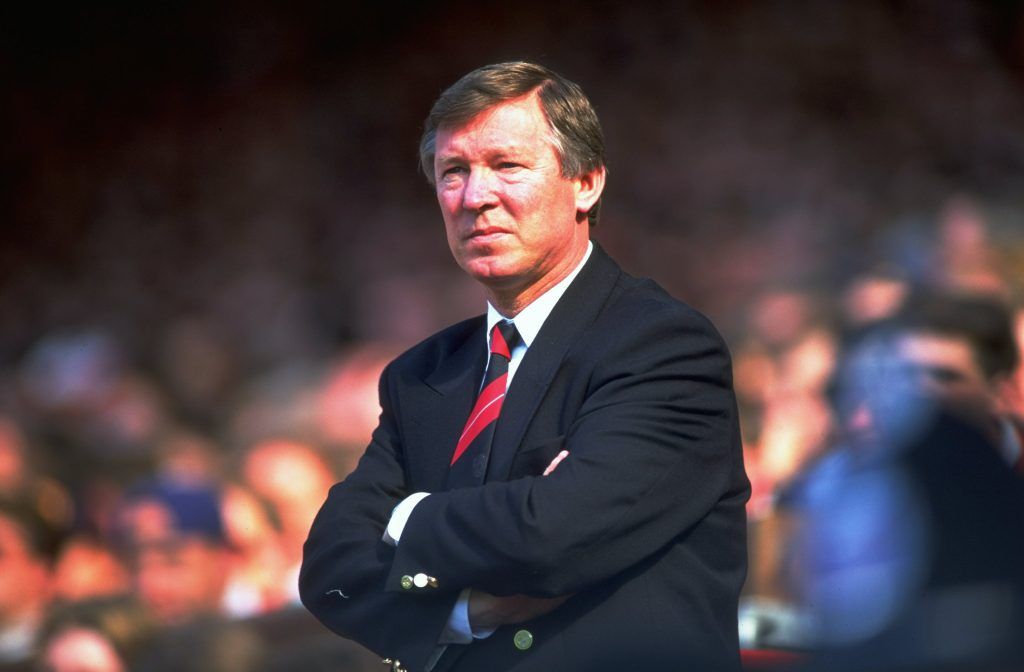 The same occurred three years later at St James Park. Ferguson's team played Newcastle United, another swashbuckling side at the top of the table, and once again they emerged with a win.
Newcastle absolutely hammered Man United in the first half. Ferguson's team were extremely fortunate to go into the break without conceding after a masterclass from Schmeichel, who denied Les Ferdinand with several brilliant saves.
In the second half, Eric Cantona scored against the run of play with a volley at the back post and United went on to win the game and then the league title.
The same occurred three years later at St James Park. Ferguson's team played Newcastle United, another swashbuckling side at the top of the table, and once again they emerged with a win.
Newcastle absolutely hammered Man United in the first half. Ferguson's team were extremely fortunate to go into the break without conceding after a masterclass from Schmeichel, who denied Les Ferdinand with several brilliant saves.
In the second half, Eric Cantona scored against the run of play with a volley at the back post and United went on to win the game and then the league title.
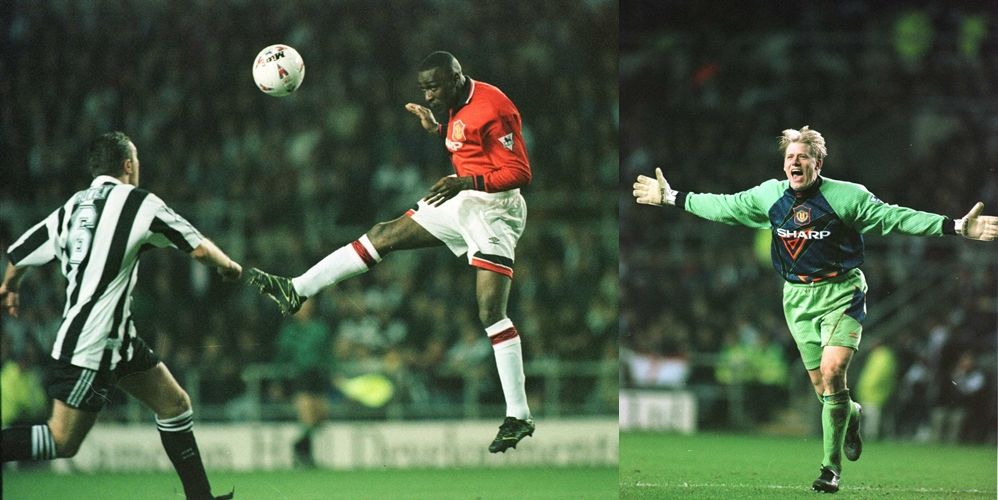 It's not an exaggeration to say Sunday's display against Tottenham Hotspur mirrored those vintage United performances. From the team's tactical approach to the brilliance of the goalkeeper to some slices of luck, this was reminiscent of the team under Ferguson.
The first half of the 1-0 win was comparable to the victory over Norwich all those years ago. Ole Gunnar Solskjaer took a leaf out of Ferguson's book with his counter-attack approach and his players were just as clinical.
United didn't cut Mauricio Pochettino's side open, but they were always a threat. Spurs' full-backs were cautious about pushing on, and the away side were waiting to punish their lack of defensive cover in midfield.
It's not an exaggeration to say Sunday's display against Tottenham Hotspur mirrored those vintage United performances. From the team's tactical approach to the brilliance of the goalkeeper to some slices of luck, this was reminiscent of the team under Ferguson.
The first half of the 1-0 win was comparable to the victory over Norwich all those years ago. Ole Gunnar Solskjaer took a leaf out of Ferguson's book with his counter-attack approach and his players were just as clinical.
United didn't cut Mauricio Pochettino's side open, but they were always a threat. Spurs' full-backs were cautious about pushing on, and the away side were waiting to punish their lack of defensive cover in midfield.
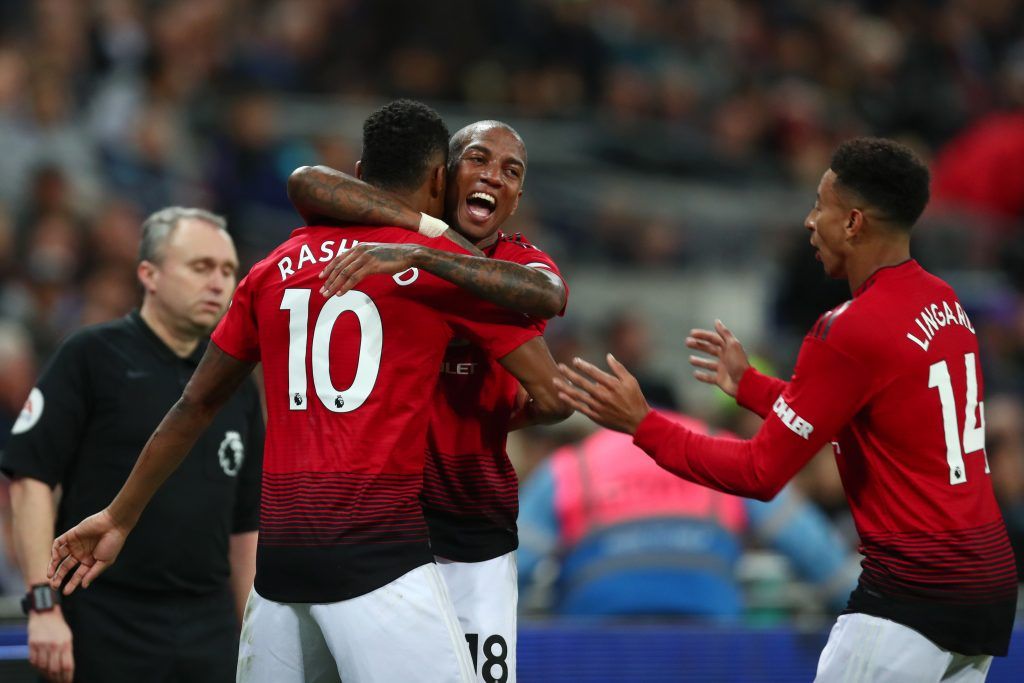 Tottenham passed it around the back and tried to draw United out, but Solskjaer's team kept their shape, they set traps and waited to spring Anthony Martial and Marcus Rashford on the break.
Kieran Trippier's error and Paul Pogba's wonderful pass ensured that happened just before half time. Rashford's finish was excellent.
The second half was reminiscent of that other classic United game, away to Newcastle in March '96, when Schmeichel refused to be beaten.
David de Gea could probably save Theresa May's Brexit deal. He's that good.
Tottenham passed it around the back and tried to draw United out, but Solskjaer's team kept their shape, they set traps and waited to spring Anthony Martial and Marcus Rashford on the break.
Kieran Trippier's error and Paul Pogba's wonderful pass ensured that happened just before half time. Rashford's finish was excellent.
The second half was reminiscent of that other classic United game, away to Newcastle in March '96, when Schmeichel refused to be beaten.
David de Gea could probably save Theresa May's Brexit deal. He's that good.
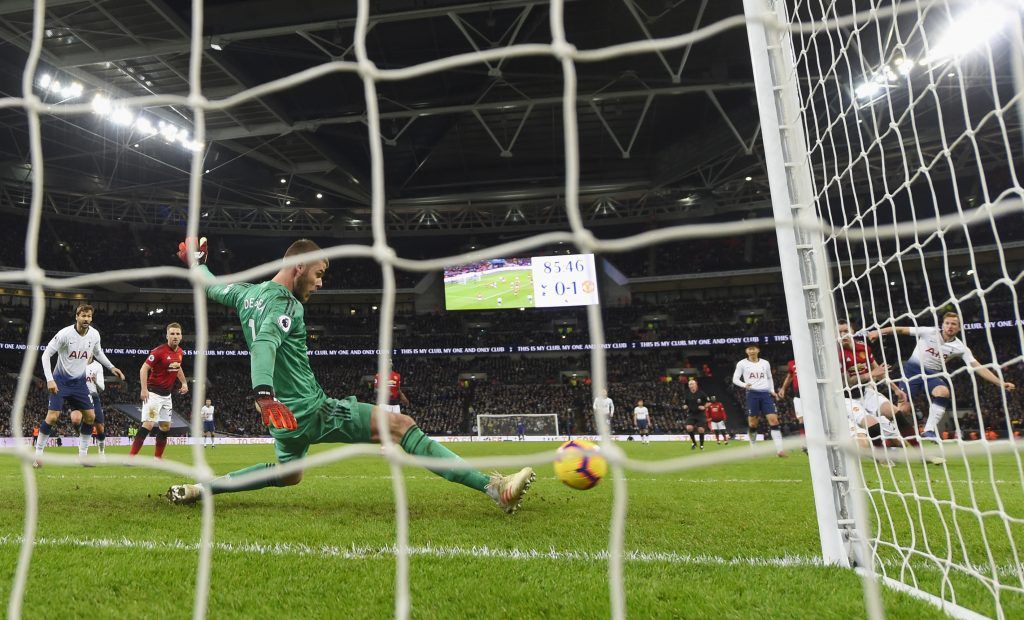 He saved everything Spurs threw at him on Sunday, making 11 stops in the second half alone.
De Gea is exceptional, but as Solskjaer said after the game, United shouldn't apologise for having a top-class goalkeeper.
https://twitter.com/SkySportsStatto/status/1084521434628673543
Some observers might wonder what was the difference between this performance and those we have seen from Jose Mourinho's teams, as United attempted to play on the counter-attack under him and did so on Sunday. It comes down to attacking intent and a willingness to take risks.
United may have sat off Spurs, but their game plan was clear from the first whistle. They may have had elements of luck, and Spurs' forwards had an off-day, but their proactive approach merited good fortune, as it did under Ferguson in those classic games.
He saved everything Spurs threw at him on Sunday, making 11 stops in the second half alone.
De Gea is exceptional, but as Solskjaer said after the game, United shouldn't apologise for having a top-class goalkeeper.
https://twitter.com/SkySportsStatto/status/1084521434628673543
Some observers might wonder what was the difference between this performance and those we have seen from Jose Mourinho's teams, as United attempted to play on the counter-attack under him and did so on Sunday. It comes down to attacking intent and a willingness to take risks.
United may have sat off Spurs, but their game plan was clear from the first whistle. They may have had elements of luck, and Spurs' forwards had an off-day, but their proactive approach merited good fortune, as it did under Ferguson in those classic games.
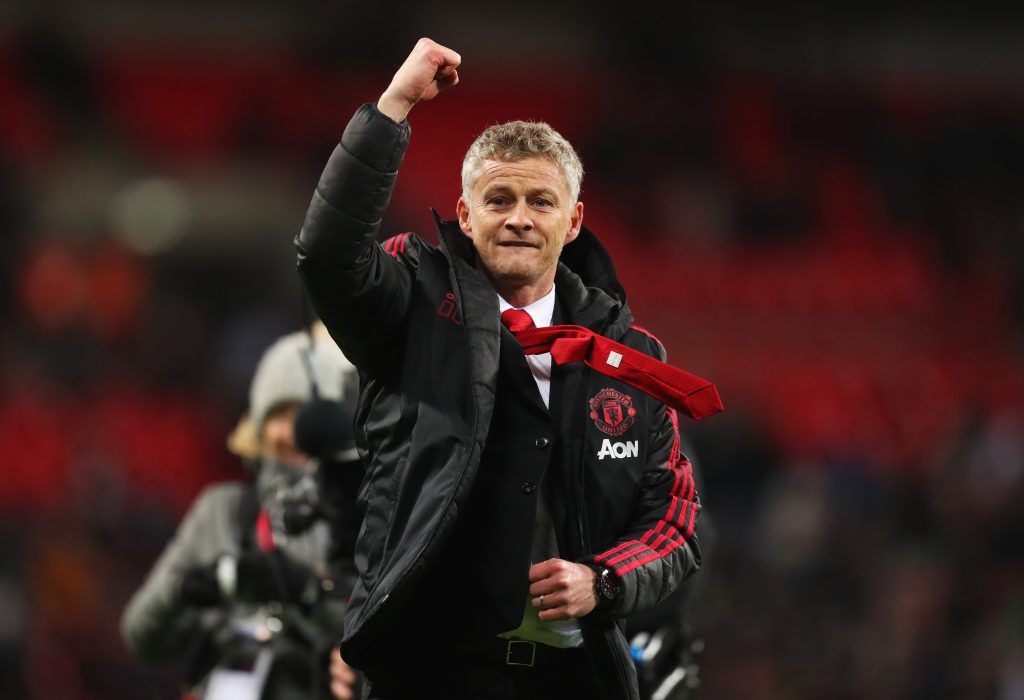 Tottenham's narrow midfield diamond and attacking full-backs left them vulnerable in wide positions. Solskjaer anticipated this and started Rashford and Martial, two players Mourinho didn't want to risk playing together up front. He only did so reluctantly, such as in a defeat away to Brighton at the end of last season, when, following the game, he bemoaned the absence of Romelu Lukaku, who didn't start Sunday's game against Spurs.
Mourinho looked for ways to not lose these games against direct rivals, he looked at what could go wrong and what players couldn't do. Solskjaer sought a way to win and got his game plan spot on - even if the team were fortunate to not concede.
Tottenham's narrow midfield diamond and attacking full-backs left them vulnerable in wide positions. Solskjaer anticipated this and started Rashford and Martial, two players Mourinho didn't want to risk playing together up front. He only did so reluctantly, such as in a defeat away to Brighton at the end of last season, when, following the game, he bemoaned the absence of Romelu Lukaku, who didn't start Sunday's game against Spurs.
Mourinho looked for ways to not lose these games against direct rivals, he looked at what could go wrong and what players couldn't do. Solskjaer sought a way to win and got his game plan spot on - even if the team were fortunate to not concede.
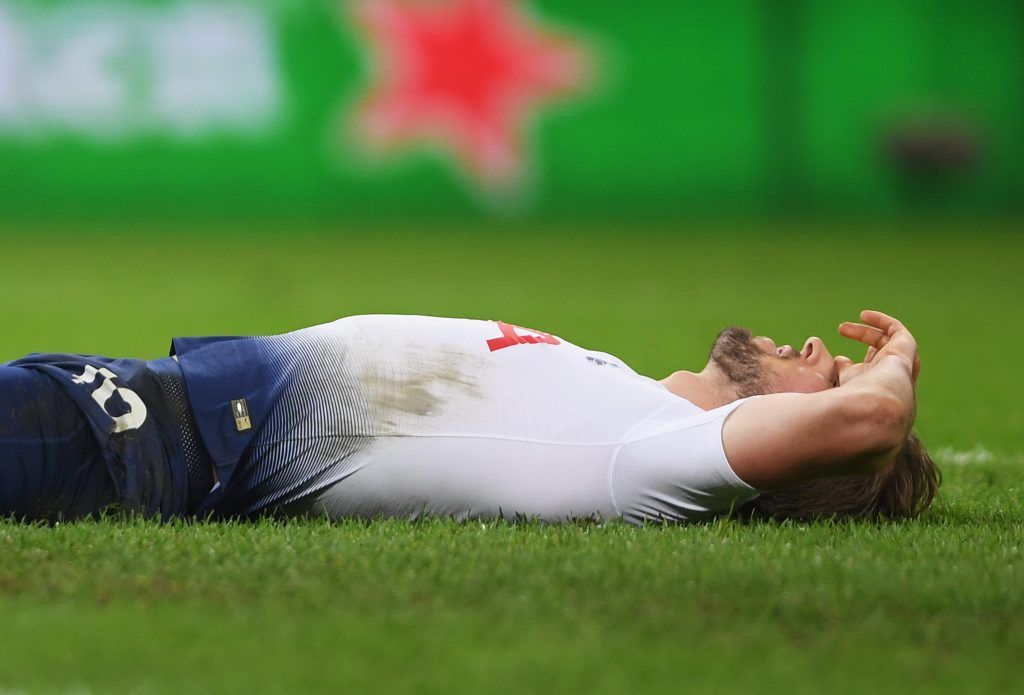 The match against Tottenham was billed as the first serious test Solskjaer would face in his role at United's caretaker manager. That notion was debatable, as he has been tested from the minute he walked back into Old Trafford.
His first meeting the squad was a test, his first press conference, his first training session and first game as coach against Cardiff City, these were all strict examinations of the former United striker. Solskjaer immediately won the squad over and got the fans back onside before his team swatted away Cardiff, Bournemouth, Huddersfield, Newcastle and Reading, scoring 19 goals.
He arguably made it look easy and, in the process, made Mourinho's final months appear even worse. He continues to make fools of those who blamed the players for United's troubles.
The match against Tottenham was billed as the first serious test Solskjaer would face in his role at United's caretaker manager. That notion was debatable, as he has been tested from the minute he walked back into Old Trafford.
His first meeting the squad was a test, his first press conference, his first training session and first game as coach against Cardiff City, these were all strict examinations of the former United striker. Solskjaer immediately won the squad over and got the fans back onside before his team swatted away Cardiff, Bournemouth, Huddersfield, Newcastle and Reading, scoring 19 goals.
He arguably made it look easy and, in the process, made Mourinho's final months appear even worse. He continues to make fools of those who blamed the players for United's troubles.
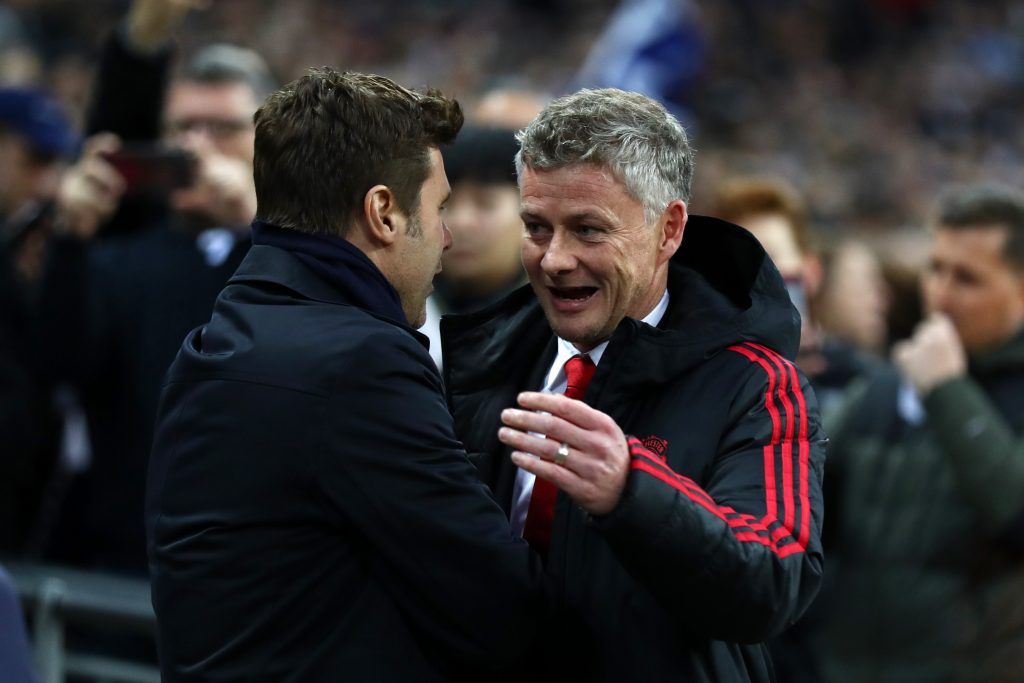 But this was his first serious test against top class opposition, a test of his tactical nous and preparation. Solskjaer passed on both accounts and proved he's more than just a positive presence, more than just the anti-Mourinho.
The 3-0 defeat to Tottenham back in August should have been the end of Mourinho's time at Old Trafford. This win could be the start of Solskjaer's pitch to be the permanent manager.
The caretaker boss channelled classic United performances of the past and did his own reputation no harm in the process.
But this was his first serious test against top class opposition, a test of his tactical nous and preparation. Solskjaer passed on both accounts and proved he's more than just a positive presence, more than just the anti-Mourinho.
The 3-0 defeat to Tottenham back in August should have been the end of Mourinho's time at Old Trafford. This win could be the start of Solskjaer's pitch to be the permanent manager.
The caretaker boss channelled classic United performances of the past and did his own reputation no harm in the process.Explore more on these topics: